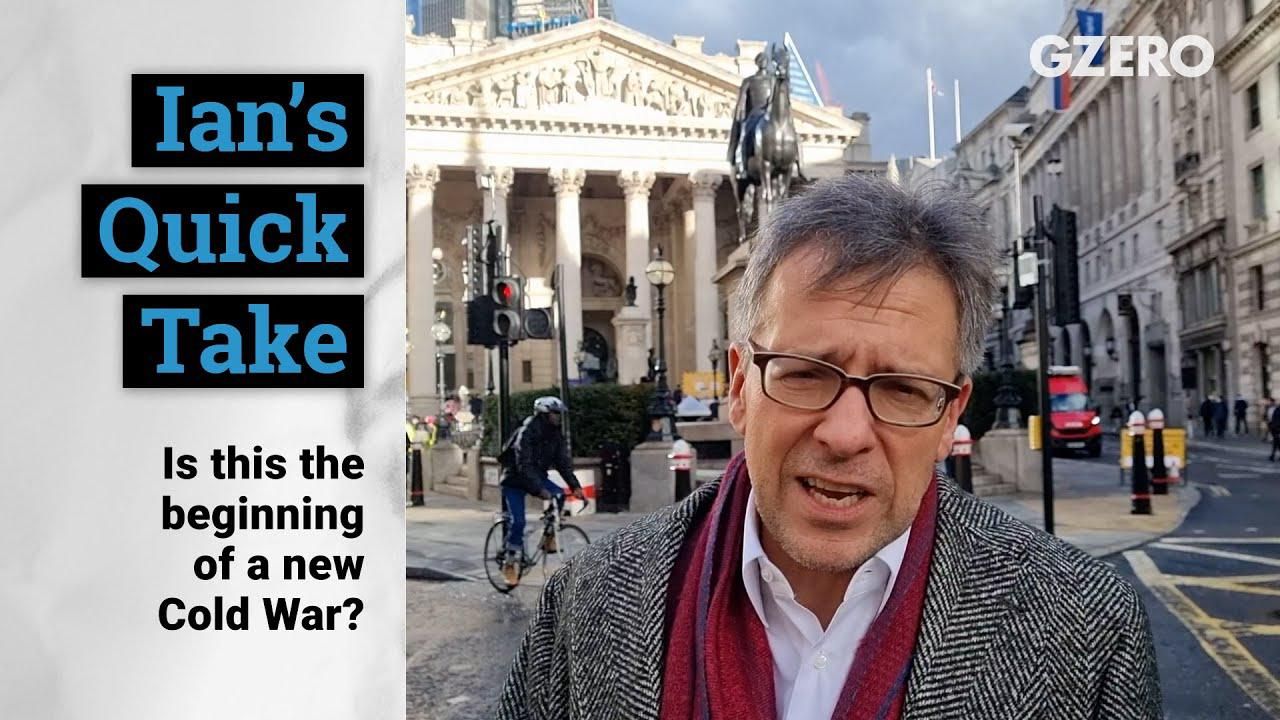
Ian Bremmer's Quick Take: Hi, everybody. Ian Bremmer here and right from the Bank of England, where we are looking at the beginning of a new Cold War between the United States, NATO, Europe, and Russia. It has indeed been an extraordinary momentous 24 hours. The Russians have decided they are going ahead to recognize the independence of the breakaway Ukrainian territories in the Donbas, sending in troops. Certainly, expected given where the Douma was heading and the statements from Putin over the last week. But nonetheless, this means diplomacy has failed between the United States, its allies and the Russians. It means sanctions are coming on to the Russians and the Russians are likely to respond and retaliate.
A couple things that are incredibly important here. The first is the Chinese response. The Chinese gave Putin the strongest possible support when he was in Beijing for the Olympics, in a joint statement made by Xi Jinping and President Putin. But since then, the Chinese have also made clear that they support a diplomatic resolution of Ukraine. They support Minsk negotiations going forward, and they supported the Ukrainian territorial integrity. Despite all of that, the Russians have basically just put a handout to the Chinese. They've said we are uninterested in supporting what you are promoting. And given that China is the most important by far a friend of Russia on the global stage among major powers, that's going to be immensely important to see how the Chinese respond here. If they decide they're really opposed to what the Russians are doing and willing to use their leverage with the Russians, keep in mind, you've got sanctions from the US and Europe. The Chinese are incredibly important, that could help bring a climb down. Short of that, we are in severely escalatory territory. We're going to see more sanctions, cyberattacks, which had been cut down by the Russians on critical infrastructure on the US, on other European countries, likely to return in very short order. And it's very hard to imagine with the end of the Nord Stream 2 pipeline that suddenly the Russians are going to take those kinds of costs on board and only take the occupied territories of the Donbas. You would expect they're going to go farther than that. And that would include taking territory that not only is Ukrainian, but that presently is occupied by Ukrainians. That means you start to see Ukrainians getting killed. It also means much more severe sanctions are coming on board. So, in escalatory mode as that occurs.
Getting incredibly dangerous, a changing global order in front of our eyes. NATO has never been as strong since the collapse of the Soviet Union, never been as important, but it's absolutely critical for all the countries of the Alliance they maintain that level of unity. And the ability to do that is going to be more challenging. The Russians aren't going to make it easy, making it easy for the Americans and NATO means full-on invasion. That would lead to much stronger alignment of everyone that, oh my God, the danger to the global order. But taking this incremental step makes it easier that countries like France or Italy, others, would peel off and say, no, we need to still work with the Russians. Find a way through, maybe not have as many tough sanctions as the Americans, the Brits, even the Germans are pushing for harder. So far that hasn't happened, so far Biden's done a solid job. So has Olaf Scholz, so even Emmanuel Macron, in maintaining a very strong and united front, that's the other thing to watch very carefully over the coming weeks.
For more of Ian Bremmer's weekly analyses, subscribe to his GZERO World newsletter at ianbremmer.bulletin.com